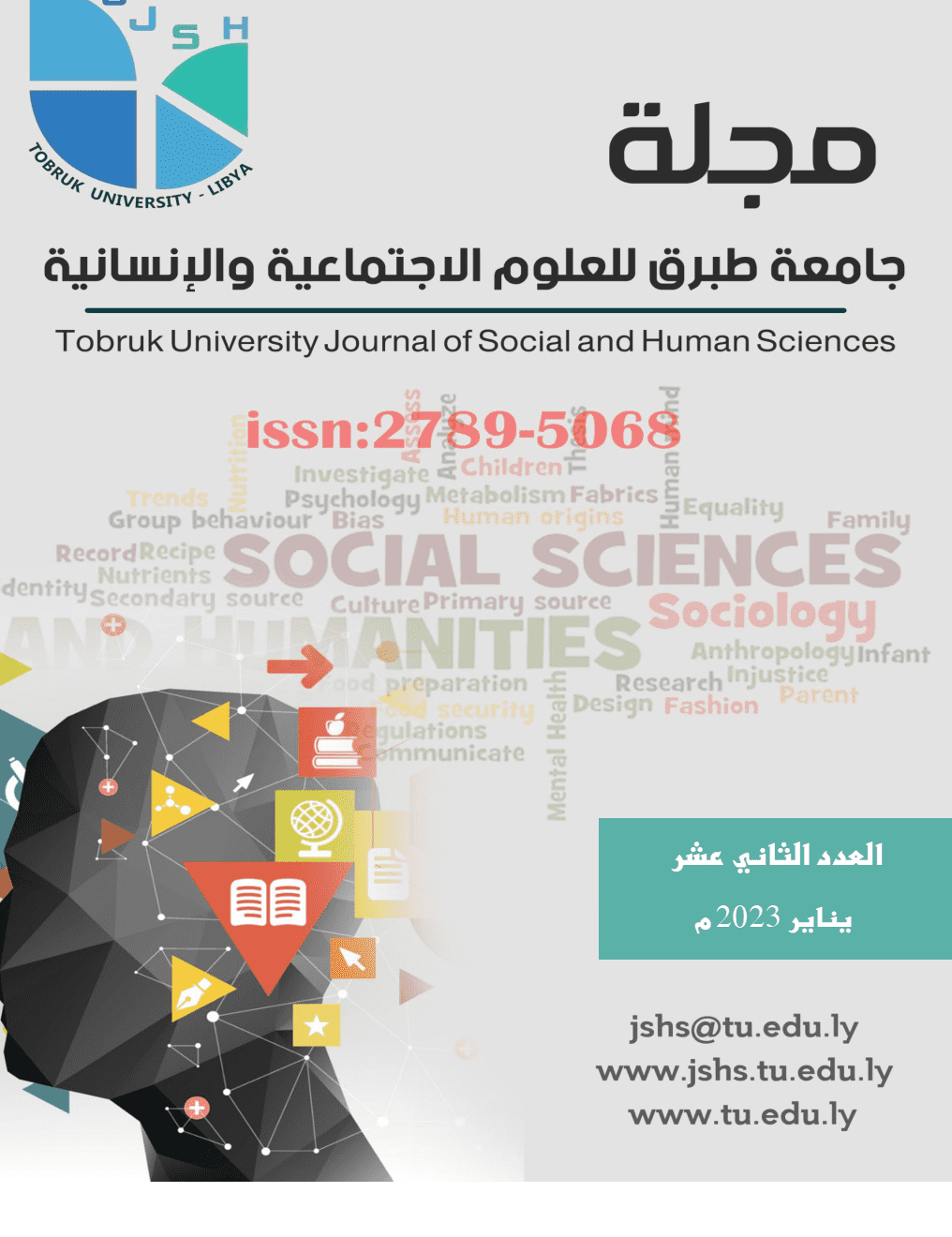Philosophical views on the significance of belonging and identity
DOI:
https://doi.org/10.64516/cyzq1y11Keywords:
الانتماء, الولاء, الهوية, – الماهية, الاكتساب, الطبع, الوراثةAbstract
The issue of belonging and identity is characterized by the holistic nature
of its close connection with human existence, as this topic is the essence
of societies' responses to the challenges they have faced throughout their history in all areas of life, social, psychological, cultural, intellectual, material, biological, political and economic.
The different visions in this regard are due to the overlapping of connotations and the interrelationship of human fields with each other on the one hand, and the different social formations and historical and cultural paths that make up each society and their impact on shaping it in a way that distinguishes it from other societies on the other hand. Therefore, questions were raised that included the concept of belonging and identity, what is the linguistic significance?, Are there intrinsically different connotations of affiliation and identity? Is affiliation and loyalty one concept? Or is one absorbed by the other? What is the nature of the link between affiliation and identity? Can this connection be formulated in light of the constants of logical relations? Are the sources of affiliation and identity considered acquired or natural genetics?
These questions can be answered by presenting and analyzing philosophical visions of what affiliation and identity are in the light of the following elements: the concept of affiliation and loyalty, linguistic significance, socio-psychological concept, spatial significance, abstract perspective, identity content and its social, psychological and cultural significance, the link of affiliation to identity, and the sources of formation of each Both of them, and the dialectic of the acquisition and instinctive environment, using a historical-critical analytical method.
References
1. ابن منظور، لسان العرب، دار المعارف، القاهرة، 1947م، ج4، ص 215.
2. أبو بكر الرازي، مختار الصحاح، مكتبة لبنان، لبنان، 1986م، مادة: نمى، ص 738.
3. سيجموند فرويد، علم نفس الجماهير، ترجمة جورج طرابيشي، دار صادر، بيروت، 1980م، ص 28.
4. يوسف ميخائيل أسعد، الانتماء وتكامل الشخصية، ص 8.
5. د. محمد عبد الغنى حسن، الولاء والانتماء: الانتماء والهوية والمواطنة، مركز تطوير الأداء، القاهرة، 2012، ص 12.
6. سيجموند فرويد، علم نفس الجماهير، ص 30.
7. يوسف ميخائيل، الانتماء وتكامل الشخصية، مكتبة غريب، القاهرة، 1992م، ص 56.
8. المرجع السابق، ص 75.
9. د. خيرى فرجاني، الانتماء الوطني، مركز الدراسات والبحوث، القاهرة، 2011م، ص 73.
10. د. محمد عبد الغني حسن، الولاء والانتماء، ص 23.
11. د. عبد الرحمن مرحبا، من الفلسفة اليونانية إلى الفلسفة الإسلامية، دار عويدات، بيروت، 2007م، ص 30.
12. ولترستيس، تاريخ الفلسفة اليونانية، ترجمة: مجاهد عبد المنعم، دار الثقافة، القاهرة، 2004، ص 36.
- Mueller, Women of Mathematics, New york, Green Wood Press, 1987.
- Edward Jay Watts, City and School in Late Antique Athens and Alexandria, University of Calitrnia Press, 2006, P.P. 197-198.
13. د. منة الله عمرو، هيباتيا، دار الكتاب العربي، القاهرة، 2018.
14. د. أشرف حافظ، معالم الفكر الأوروبي في العصر الوسيط، دار طيبة، القاهرة، 2004م، ص 71.
15. آتين جيلسون، روح الفلسفة المسيحية في العصر الوسيط، ترجمة: د. إمام عبد الفتاح، القاهرة، 1990، ص 63.
16. وللمزيد: د. حسن حنفي، نماذج من الفلسفة المسيحية في العصر الوسيط، القاهرة، 1969م، ص 163.
17. د. محمد على أبو ريان، أصول الفلسفة الإشراقية عند شهاب الدين السهروردي، ط2، دار الطلبة، بيروت، 1969م، ص 73.
18. وأيضا: السهروردي، هياكل النور، تحقيق وتعليق: د. محمد على أبو ريان، مكتبة السعادة، القاهرة، 1957م.
19. د. محمد على أبو ريان، تاريخ الفكر الفلسفي في الإسلام، دار المعرفة الجامعية، الأسكندرية، 1980م، ص 198.
20. للمزيد: ابن رشد، فصل المقال، تحقيق: د. محمد عمارة، القاهرة، 1972م.
21. د. الطيب الحميدي، الوجيز في تاريخ الفلسفة، دار حامد، تونس، 2001م، ص 62، 63.
22. د. أشرف حافظ، الرأسمالية وأزمة الفكر العربي، دار كنوز المعرفة، الأردن، 2010م، ص 186.
Downloads
Published
Issue
Section
License
Copyright (c) 2023 أ. د. أشرف حافظ (Autor/in)

This work is licensed under a Creative Commons Attribution 4.0 International License.








